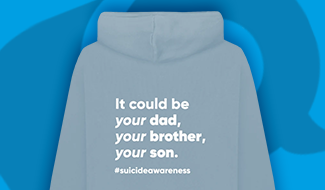In cases where there is a genuine fear and evidence that someone may take certain action in respect of a child which you would not agree with, you may require the intervention of the court and it is important to seek urgent legal advice.
What is a Prohibited Steps Order?
A Prohibited Steps Order (PSO) is an order of the court providing that certain action cannot be taken by a parent in meeting their parental responsibility (PR) for a child without express permission of the court. In broad terms, the exercise of PR relates to any decisions that are made concerning the welfare, development and upbringing of a child.
Essentially, a PSO restricts the exercise of PR and forbids a person from taking certain steps, such as:
- Removing a child from your care or other approved care giver;
- Taking a child out of the UK;
- Moving the child to another location within the UK;
- Removing a child from their school;
- Bringing a child into contact with certain people;
- Changing a child’s name or surname;
- Making decisions in respect of a child’s medical treatment, etc.
A court can make a PSO during the course of ongoing family proceedings, in conjunction with another court application (such as a Child Arrangements Order providing for a child to live with you) or as a free-standing application.
Application process
Any parent, person with PR or guardian in respect of a child can make an application for a PSO with the required court fee of £215. The person applying may not have to pay the court fee, or may get some money off, subject to an assessment of their means, for example if you have no or limited savings, if you are in receipt of certain benefits or if you are on a low income. You can find out more about applying for help with court fees at the Gov. uk website.
Before making an application to the court, it is a requirement that you attend a Mediation Information and Assessment Meeting (MIAM), unless you qualify for an exemption from attending (which will often be the case in urgent cases).
Involvement of Cafcass
After making an application to the court, a Children and Family Court Advisory and Support Service (Cafcass) Officer will be appointed. Cafcass will meet with the parties to see if agreement can be reached and prepare a letter to the court setting out the outcome of initial safeguarding checks undertaken as to any potential welfare issues and their recommendations going forward. If welfare issues are highlighted and/or if no agreement can be reached, the court may ask Cafcass to investigate further and prepare a report (called a ‘section 7’report) to the court with their recommendations. This will be considered carefully and given significant weight by the court in making adecision.
Urgent applications
In an emergency, you can apply to the court for an urgent PSO without the other person being given notice of the hearing. In this case, the court may make a temporary or interim PSO and arrange for there to be another hearing when the other person can attend and put their case forward. This will also allow an opportunity for the Cafcass initial safeguarding enquires to be made.
Welfare of the child is paramount
When considering whether or not a PSO should be made, the court’s paramount consideration will be the welfare of the child. In cases where the other party contests the application, the court must have regard to the ‘welfare checklist’, which is a list of 7 criteria which must be considered before a decision is made.
In addition, the court must have regard as to whether any delayin making a PSO will be prejudicial to a child and it must be satisfied that in the circumstances, making a PSO would be better for a child than making no order at all. In the event the court decides that a PSO is required, consideration will always be given to the duration of the order and in some cases, an order can be made to last indefinitely.
Additional Reading/Resources
If you are facing court alone many people have found Lucy Reed’s book, ‘Family Court Without A Lawyer’ particularly useful.
Some courts offer a free ‘Support Through Court’ service. Volunteers offer support and guidance before, during, and after court. They ensure that those facing court alone feel prepared and supported in accessing justice.
Posted on October 26, 2019














